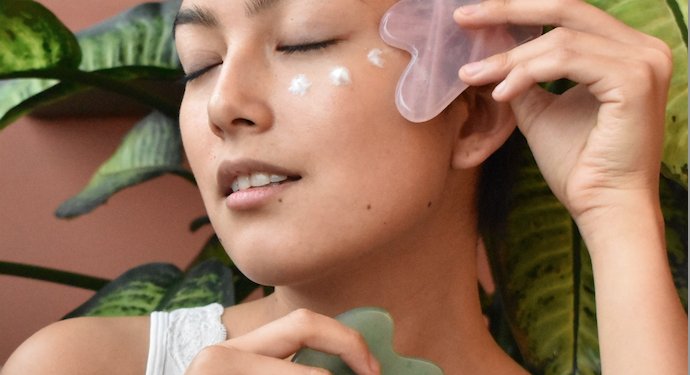The purpose of a skincare routine is simple: to protect and take care of your skin. But what if the products you’re using everyday are doing more harm than good?
Unfortunately, this was the case for many of us – we trusted cosmetic companies to prioritize our health and the environment, only to find out months later in a scandalous news brief that our favorite brand is actually negligent.
At this point, we can’t be shocked. Capitalist companies solely care about money. They’ll sacrifice anything, even the health of their customer, to make the greatest profit in the shortest amount of time.
As consumers, we must be wary of products from large corporations and, contrarily, more diligent in seeking out brands we know we can trust. Luckily, Impakter Eco does this work for you.
Why Shop Eco?
The Impakter Eco Marketplace only works with brands that reach a significant level of sustainability in their business operations and product development. This makes your job as an eco-conscious consumer much easier as the Impakter Eco team has done the research for you.
You can rest assured that any product for purchase on the Eco Marketplace has been sustainably verified and therefore, impacts its creators, consumers, and the environment in a positive way. When it comes to skincare, the Eco Marketplace has a lot to offer with zero risk of toxic ingredients.
But if you prefer to do the research yourself, below are some ingredients you should avoid.
Coal Tar
Derived from petroleum, coal tar does not belong in your skincare routine. It is a mixture of chemicals and recognized as a carcinogen. Most common in hair dyes, coal tar can also be found in soaps and lotions. On labels, it can be identified as, “crude coal tar,” “estar,” “impervotar,” and “naphtha.”
Exposure to coal tar can cause many health issues like skin tumors, cancer, and neurological damage.
Pucker Up! 💋
It's #NationalLipstickDay! 💄
Did you know dangerous contaminants, such as lead, could be lurking in your cosmetic?
Find out what we're doing to combat this. https://t.co/Qag6UTYNNR pic.twitter.com/dQ6VtM08nb
— U.S. FDA (@US_FDA) July 29, 2022
Fragrance
While they make products smell delicious, fragrance ingredients may be derived from petroleum or any of the thousands of chemicals that can be used to create the scent. When “fragrance” or “perfume” is listed on the label, there are over 3,000 possible chemicals, many that have not been tested for toxicity.
Fragrance is commonly found in moisturizers, toners, serums, and exfoliators. Health risks of harmful fragrance ingredients include skin and eye irritation, nausea, and nervous system disruption.
Parabens
These chemical preservatives prevent the growth of bacteria and mold in products like moisturizers. FDA in the US does not regulate the use of parabens which means common cosmetic products contain them. Currently, there is not enough evidence to link parabens to specific health problems, but scientists continue to evaluate new data to determine hazards.
Polyacrylamide
The use of this polymer is highly debated in the cosmetic industry. While some US scientists believe this ingredient is harmless, especially in small amounts, others have accepted its derivative molecule, acrylamide, as a carcinogen. The EU, which regulates cosmetics much more than the US, has restricted use of polyacrylamide and acrylamide to a maximum content of 0.1kg and 0.5kg respectively.
Related Articles: Make the Shampoo Shift | First Steps to a Zero Waste Beauty Routine
Phthalates
Mostly found in fragranced lotions and body washes, phthalates are linked to endocrine disruption, developmental and reproductive toxicity, and cancer. People who are pregnant and breast-feeding are particularly at risk if exposed to this chemical. The EU has had phthalates from all cosmetic products, but the ingredient still runs rampant in the US.
Retinol
Retinol is marketed by brands as a compound supportive of anti-aging, good vision, and healthy skin. In reality, the natural vitamin A supports these elements while retinol is possibly linked to cancer and causes developmental and reproductive issues. It must never be used in high quantities and should be avoided in skincare products.
Dodge the Damage
It’s never too late to make your skincare routine more sustainable. The fact that you’ve been using a product for years and never experienced a harmful side effect doesn’t mean you never will. You’re better off building loyalty with products that guarantee safety for you, your skin, and your planet.
Editor’s Note: The opinions expressed here by Impakter.com columnists are their own, not those of Impakter.com. — In the Featured Photo: Beauty Routine. Featured Photo Credit: Cherrydeck.









